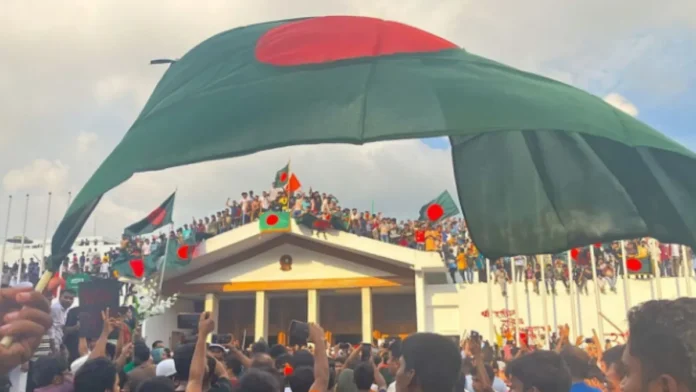The Rights and Risks Analysis Group (RRAG) has urged the United Nations High Commissioner for Human Rights, Volker Türk, to advocate for the establishment of a UN human rights office in Bangladesh during his visit on October 29-30, 2024. This call comes in response to alarming reports of human rights violations occurring in the country, particularly concerning indigenous peoples and religious minorities.
Background of Human Rights Violations
RRAG emphasized the interim government’s lack of transparency regarding a report from an inquiry commission led by Additional Divisional Commissioner Mohammad Nurullah Noori. This commission was tasked with investigating violent incidents against indigenous populations in the Dighinala, Khagrachari, and Rangamati regions that occurred from September 19 to October 1, 2024. The violence resulted in the deaths of at least four indigenous individuals, injuries to 75 others, and the destruction or looting of 142 properties, including homes, businesses, and Buddhist temples.
Additionally, the Hindu minority in Bangladesh has faced unprecedented violence. Reports indicate that from August 5 to 20, 2024, over 1,068 properties and 22 places of worship were damaged, according to the daily newspaper Prothom Alo. The Bangladesh Hindu Buddhist Christian Oikya Parishad reported a staggering 2,010 incidents of communal violence during the same timeframe. Despite heightened security measures during the Durga Puja celebrations from October 1-11, 2024, more than 35 incidents related to the festivities were reported by the police.
Criticism of Government Response
Dr. Mohammad Yunus, the Chief Advisor, has stated that issues faced by indigenous populations will be resolved by the next elected government. However, critics like Suhas Chakma, Director of RRAG, argue that this statement shifts responsibility away from the current administration. “On one hand, Dr. Yunus has distanced himself from the plight of the indigenous peoples by stating that the Peace Accord will be implemented by the next government. On the other hand, he attributed the violence against religious minorities to their alleged allegiance with the Awami League,” Chakma remarked.
This exclusionary approach, as highlighted by Chakma, is evident in the formation of the Constitutional Reforms Commission, which did not include representatives from religious minority groups or indigenous peoples. Such oversights raise serious concerns about the representation and rights of marginalized communities in Bangladesh.
Concerns Over Judicial Independence
RRAG has also raised alarms about the lack of judicial independence in Bangladesh. Recent actions, such as the removal of five Supreme Court judges and the denial of judicial duties to 12 High Court judges, have sparked fears of mob justice and further political manipulation. Judges who release activists connected to the previous government face the threat of violence from student mobs.
The lack of judicial independence has serious implications for those accused of various crimes. By August 31, 2024, approximately 194,000 individuals, including 26,268 named individuals, faced accusations across 268 FIRs (First Information Reports). Furthermore, at least 54 journalists perceived as supporters of the former Prime Minister Sheikh Hasina’s government have been charged with serious offenses, including genocide and crimes against humanity, for their journalistic endeavors.
Chakma stated, “Unless proceedings of the filed FIRs are halted and a Committee of Public Prosecutors is established to review each FIR, thousands of unnamed individuals will suffer from false prosecutions.” This situation highlights the urgent need for judicial reform and protection of individual rights in Bangladesh.
High-Profile Criminals Released Amidst Prosecutions
RRAG’s concerns extend to the striking disparity in the legal treatment of high-profile criminals. While innocent individuals are facing prosecution, at least 43 notable criminals and militants, including Mufti Jashimuddin Rahmani—leader of the Al-Qaeda-inspired Ansarullah Bangla Team—have been released on bail despite numerous pending charges against them. This raises questions about the integrity of the judicial process in Bangladesh and the selective application of justice.
The Rights and Risks Analysis Group’s call for the establishment of a UN human rights office in Bangladesh is a crucial step toward addressing the systemic human rights violations affecting indigenous peoples and religious minorities.


